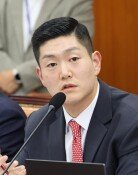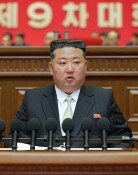Kim Jong Ils Surprise Visit to China
Kim Jong Ils Surprise Visit to China
Posted August. 27, 2010 13:11,
North Korean leader Kim Jong Il went to Beijing early Thursday morning through Chinas Jilin Province on his exclusive train, fueling speculation over the purpose of his sudden visit. His sixth trip to Beijing since 2000 came 111 days after he made a state visit to China in early May at the invitation of Chinese President Hu Jintao. This is the second time for Kim to make successive visits to China in a short period of time. In 2001, Kim went to Beijing twice 20 months apart.
Former U.S. President Jimmy Carter is in Pyongyang to win the release of detained American Aijalon Mahli Gomes. So Kims abrupt visit to Beijing raises speculation over an emergency situation in Pyongyangs power transfer, North Korea experts say. Kim could require consultation with Beijing in the run-up to a meeting of representatives of the Norths ruling Korean Workers Party early next month. To be held for the first time in 44 years, the meeting is intended to officially transfer power to Kims youngest son Jong Un. The North Korean leader might also want to cooperate with China to ease lingering global pressure over the Norths sinking of the South Korean naval vessel Cheonan or seek massive economic assistance to overcome the Norths flood damage and economic downturn.
Geopolitics surrounding the Korean Peninsula has become increasingly unpredictable. China and North Korea are apparently attempting to ease tension in the wake of the Cheonan sinking through the resumption of the six-party nuclear talks. The stalled dialogue has been suspended for 20 months. Chinas top negotiator to the talks, Wu Dawei, arrived in Seoul Thursday following a visit to Pyongyang last week. Wu apparently seeks to mediate between the two Koreas by delivering the intention of Beijing and Pyongyang to resume the six-party talks. Seoul also hinted at a shift in its stance on the resumption of the talks by saying an apology and regret for the Cheonan incident by the North are not preconditions for the dialogues resumption.
Carter went to Pyongyang as a private individual, not as an envoy for the U.S. administration, but the possibility of him delivering a message from Washington to Pyongyang cannot be ruled out. South Korea and the U.S., however, oppose holding talks for the sake of dialogue and the White House has said it will not "buy the same horse twice." So a breakthrough is highly unlikely unless the North makes a dramatic change in its stance. China and North Korea must bear this in mind.
South Korea should stick to its principles and remain consistent on North Korea policy. Seoul must also closely watch Kims visit to Beijing, the diplomatic activities of China and the North for the resumption of the six-party talks, and any change in Washington-Pyongyang relations.







